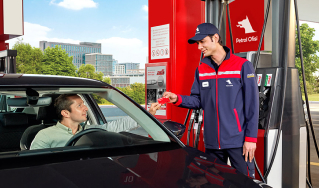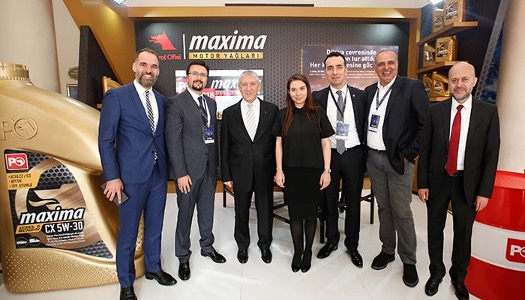As an actor in the lubricants industry for 25 years, Sezgin Gürsu remarked that technology, on one side, and progress, on the other, trigger each other for further improvement:
“The parallel development of the automotive industry and this interaction are evident in the history of the lubricants industry. In the early 1990s, the first plazas started to be established in the Authorized Sales and Service market. In those years, lubricant companies also supported the construction of these plazas, the installation of equipment, the selection of products, and the determination of specifications. Five years from now, today’s business model and products will completely change. We are going through this change that has kicked off at a great pace.”
35,000 different specifications in 10 years
Only ten years ago, there were only a few engine lubricant standards, and we could use them on every brand and model. There are currently 35,000 specifications for passenger cars and light commercial vehicles. This is progress and change that solely results from the automotive industry. Three main criteria have brought us to today’s 35,000 specifications: exhaust emissions, engine heavier operating conditions, and fuel efficiency caused by competition.
Looking back at the criteria for the first emission rates published in 1992, Euro norms are 96% more strict today. They will be much more challenging, and new standards will come our way in 2019 and 2020, which will continue all the way up to 0 emissions. '0 emission' means 'emissions cleaner than air.' This pressed the industry, and a transition to full synthetic versions took place in lubricants.
The second factor is higher performance expectations for smaller engines, causing OEMs to need differentiated products. With the introduction of different specifications, each brand has focused on developing proprietary products. Formulations have also become stricter because these smaller engines required more protection.
The journey from 10W40 and 20W50 to 0W30 and 0W20
It is an inverse equation, though. Indeed, it was necessary to increase the viscosity to provide protection. However, fuel consumption is an important criterion for all automotive manufacturers. Today, we speak of 4 liters/100 km, down from 7-8 liters. This is a rather harsh criterion for lubricants technologies, pushing all stakeholders to pick more difficult paths. We have all started to work on thinner lubricants. After the discussions, which used to be on 10W40 or 20W50 in the 70s-80s, we now see that even 5W30 disappears, with 0W30 and 0W20 coming to the fore. Much thinner lubricants emerge today that are specific to every vehicle and even every model. Things are getting harder for the lubricants industry.
We produce lubricants that comply with lower emission rates and provide more protection for engines working in heavier conditions while also addressing lower fuel consumption requirements.
Petrol Ofisi Group Technology Center is at the disposal of the automotive industry
We successfully carry out all these challenging processes at Petrol Ofisi Technology Center (POTEM) in our Derince plant. At POTEM, one of Turkey's most advanced laboratories, we conduct R&D activities in collaboration with all global additive producers. We are developing and manufacturing products that meet the needs of Turkey in compliance with world standards and specifications.
At Petrol Ofisi Group, we have consistently maintained our leading position in the lubricants and chemicals market for eight years. Our factory in Derince operates with an annual production capacity of 140,000 tons and a range of more than 350 products. We are exporting Petrol Ofisi Group’s signature products to 33 countries. Although it seems a small quantity compared to the export of cars, this has a special value for us as it means that a brand born in Turkey can reach 33 countries on four continents.
At Petrol Ofisi Group, we have always stood and will continue to stand by the automotive industry with our 77 years of know-how, advanced technology, and global R&D power. At POTEM, we understand both the current and future needs of the automotive industry and create the most suitable solutions and products for them.



